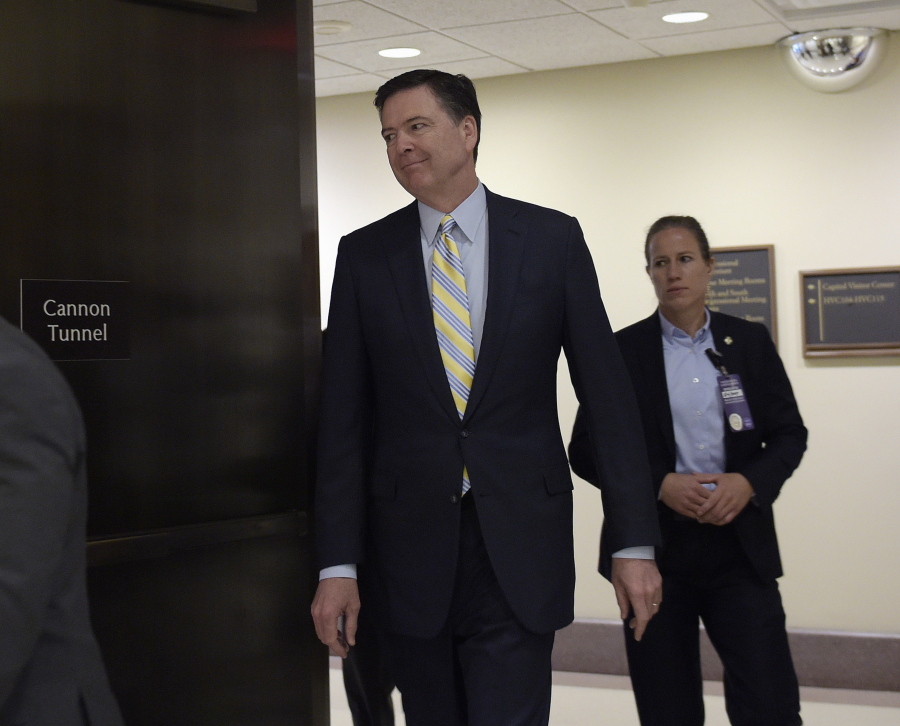3. The Department of Homeland Security’s Customs and Border Protection division, which provides agents at border checkpoints, apparently has difficulty finding employees who can pass a lie detector test. Sen. Jeff Flake, R-Ariz., said that 65 percent of the agency’s job applicants fail their polygraph test. He wondered if the agency had ever consulted with the FBI on that rate, which he describes as “significantly higher . than any other federal law enforcement agency.” “The FBI does pretty well with this,” Flake said. President Donald Trump has signed an executive order directing CBP to hire 5,000 new Border Patrol agents.
4. There are currently about 2,000 terrorism investigations underway in the United States, Comey said. About 1,000 of those are what Comey called “homegrown,” meaning suspects who appeared to have had no contact with people outside the United States. The others involved cases with some foreign involvement. Of the 2,000, about 300 involve people who came to the United States as refugees, one-third of those from six countries that were included in a Trump-ordered travel ban that has been stayed by a federal court in Hawaii. The remaining two-thirds were from Iraq, which had been included in Trump’s first attempt at a travel ban but was excluded from the second. Nearly all of the suspects in the investigations are American citizens, Comey said. Asked by Sen. Patrick Leahy, D-Vt., if he agreed that “citizenship is unlikely to be a reliable indicator for potential terrorist activity,” Comey answered simply “yes.”
5. Former Congressman Anthony Weiner still has not been interviewed about why as many as 30,000 of Hillary Clinton’s emails ended up on his personal laptop. The emails were discovered as part of an FBI probe into Weiner’s contact with an underage girl as part of a federal investigation. The discovery gave rise to Comey’s infamous Oct. 27 letter to Congress saying the FBI was reopening its probe into Clinton’s emails – a pronouncement Clinton blames in part for her election loss to Trump. Comey’s spirited defense of that decision was the subject of most news coverage, but he also provided new details of how the Clinton emails ended up on Weiner’s laptop: Clinton’s longtime aide, Huma Abedin, who at the time was married to Weiner, forwarded them to Weiner to print out “as a matter of convenience.” Comey said he did not know if Weiner read the emails, 12 of which were found subsequently to have contained classified information. As for why Weiner has not been questioned in that case, Comey said it was a matter of priorities: “I don’t think we’ve been able to interview him because he has pending criminal problems of other sorts.”
6. The United States last month broke up a huge hacking operation that was run by a Russian hacker who’d taken control of as many as 45,000 computers. Those computers were used to send 4 billion spam messages every day. Comey explained the Kelihos botnet in colorful terms – “zombie armies of computers that have been taken over by criminals, lashed together in order to do tremendous harm to innocent people.” He said the scheme, which had been going on for at least seven years, was broken up when Spanish national police “locked up the Russian hacker behind that botnet, who made a mistake that Russian criminals sometimes make of leaving Russia and visiting the beautiful city of Barcelona.” He result: “the good people’s computers who had been lashed to that zombie army have now been freed from it and are no longer part of a huge criminal enterprise.”



